Filter by
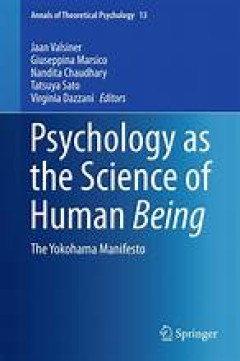
Psychology as the Science of Human Being
- Edition
- 1
- ISBN/ISSN
- 978-3-319-21094-0
- Collation
- Psikologi
- Series Title
- Annals of Theoretical Psychology
- Call Number
- 150
- Edition
- 1
- ISBN/ISSN
- 978-3-319-21094-0
- Collation
- Psikologi
- Series Title
- Annals of Theoretical Psychology
- Call Number
- 150
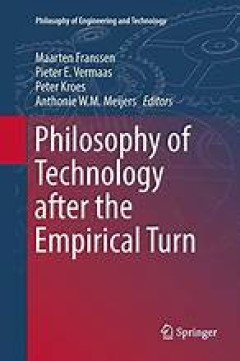
Philosophy of Technology after the Empirical Turn
This volume features 16 essays on the philosophy of technology that discuss its identity, its position in philosophy in general, and the role of empirical studies in philosophical analyses of engineering ethics and engineering practices. This volume is published about fifteen years after Peter Kroes and Anthonie Meijers published a collection of papers under the title The empirical turn in …
- Edition
- 1
- ISBN/ISSN
- 978-3-319-33717-3
- Collation
- Filsafat
- Series Title
- Philosophy of Engineering and Technology
- Call Number
- 100
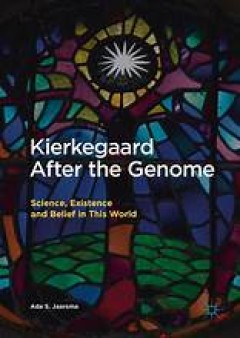
Kierkegaard After the Genome
This book brings Søren Kierkegaard’s nineteenth-century existentialist project into our contemporary age, applying his understanding of “freedom” and “despair” to science and science studies, queer, decolonial and critical race theory, and disability studies. The book draws out the materialist dimensions of belief, examining the existential dynamics of phenomena like placebos, epigen…
- Edition
- 1
- ISBN/ISSN
- 978-3-319-57981-8
- Collation
- Biologi
- Series Title
- -
- Call Number
- 570
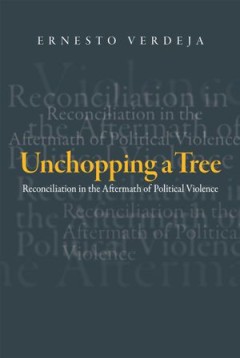
Unchopping a Tree : Reconciliation in the Aftermath of Political Violence
Political violence does not end with the last death. A common feature of mass murder has been the attempt at destroying any memory of victims, with the aim of eliminating them from history. Perpetrators seek not only to eliminate a perceived threat, but also to eradicate any possibility of alternate, competing social and national histories. In his timely and important book, Unchopping a Tree, E…
- Edition
- -
- ISBN/ISSN
- 9781439900543
- Collation
- 240 halaman
- Series Title
- Politics, History, and Social Change
- Call Number
- 320 VER u

The Insistence of Art : Philosophy and Aesthetics after Early Modernity
The essays in The Insistence of Art suggest ways in which the artworks and practices of the early modern period show the essentiality of aesthetic experience for philosophical reflection, and in particular for the rise of aesthetics as a philosophical discipline, while also showing art's need for philosophy.
- Edition
- -
- ISBN/ISSN
- 9780823275809
- Collation
- -
- Series Title
- -
- Call Number
- 100 INS
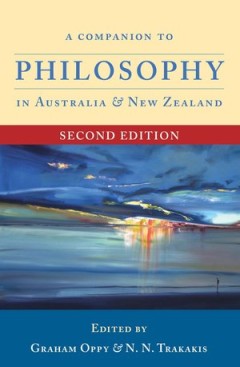
A Companion to Philosophy in Australia and New Zealand
Philosophy in Australia and New Zealand has been experiencing something of a ‘golden age’. Within this, the richness of Australasia’s philosophical past, though less well known, should not be forgotten: Australasian philosophy includes much distinctive and highly original work. The Companion contains a wide range of articles by prominent philosophers and scholars, as well as…
- Edition
- Second Edition
- ISBN/ISSN
- 9781921867712
- Collation
- -
- Series Title
- -
- Call Number
- 100 OPP c

Clandestine Philosophy : New Studies On Subversive Manuscripts In Early Moder…
Clandestine Philosophy examines the circulation and consequences of 'clandestine philosophical manuscripts', a genre that flourished in the eighteenth century and included forbidden works such as erotic texts, political pamphlets, satires of court life and of the nobility, forbidden religious texts, and books about alchemy and the occult. The editors have brought together leading experts on the…
- Edition
- -
- ISBN/ISSN
- 9781487531560
- Collation
- 448 halaman
- Series Title
- UCLA Clark Memorial Library Series
- Call Number
- 070 PAG c

The Problem of Objectivity in Gadamer's Hermeneutics in Light of McDowell's E…
This book reassesses Gadamer’s hermeneutics by bringing it into a dialogue with John McDowell’s minimal empiricism. It employs the resources of McDowell’s minimal empiricism to address the transcendental and ontological presuppositions for objective experience and understanding, while retaining Gadamer’s emphasis on the historicity of understanding. By means of the dialogue with McDowel…
- Edition
- 1
- ISBN/ISSN
- 978-3-319-18648-1
- Collation
- Filsafat
- Series Title
- Contributions to Hermeneutics
- Call Number
- 100
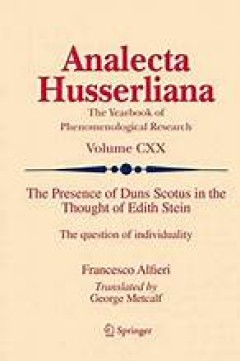
The Presence of Duns Scotus in the Thought of Edith Stein
This book examines the phenomenological anthropology of Edith Stein. It specifically focuses on the question which Stein addressed in her work Finite and Eternal Being: What is the foundational principle that makes the individual unique and unrepeatable within the human species? Traditional analyses of Edith Stein’s writings have tended to frame her views on this issue as being influenced by …
- Edition
- 1
- ISBN/ISSN
- 978-3-319-15663-7
- Collation
- Filsafat
- Series Title
- -
- Call Number
- 100
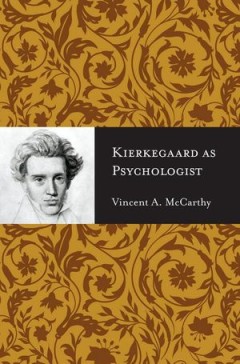
Kierkegaard As Psychologist
Kierkegaard’s psychological thought has always been acknowledged as very rich—Reinhold Niebuhr hailed him as the greatest psychologist of the soul since Augustine—and has had a major influence on Heidegger, Sartre, and existential psychoanalysis. Nevertheless, his accomplishment has not always been fully appreciated, in part because it is so scattered across his works. As Vincent McCarthy…
- Edition
- -
- ISBN/ISSN
- 9780810131323
- Collation
- 208 halaman
- Series Title
- -
- Call Number
- 100 MCC k
 Computer Science, Information & General Works
Computer Science, Information & General Works  Philosophy & Psychology
Philosophy & Psychology  Religion
Religion  Social Sciences
Social Sciences  Language
Language  Pure Science
Pure Science  Applied Sciences
Applied Sciences  Art & Recreation
Art & Recreation  Literature
Literature  History & Geography
History & Geography